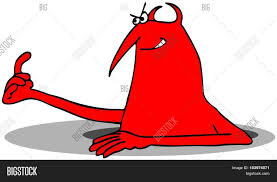We’re mapping the brain in amazing detail—but our brain can’t understand the picture.

m.nautil.us
Quote:
““Let me put it this way,” Lichtman said. “Language itself is a fundamentally linear process, where one idea leads to the next. But if the thing you’re trying to describe [the brain] has a million things happening simultaneously, language is not the right tool. It’s like understanding the stock market. The best way to make money on the stock market is probably not by understanding the fundamental concepts of economy. It’s by understanding how to utilize this data to know what to buy and when to buy it. That may have nothing to do with economics but with data and how data is used.”
The problem is worse than the above. Language is produced by the brain. Can we call on the product to describe the producer? - Soupie
““Maybe human brains aren’t equipped to understand themselves,” I offered.
“And maybe there’s something fundamental about that idea: that no machine can have an output more sophisticated than itself,” Lichtman said. “
What a car does is trivial compared to its engineering.
What a human brain does is trivial compared to its engineering. Which is the great irony here. We have this false belief there’s nothing in the universe that humans can’t understand because we have infinite intelligence.
But if I asked you if your dog can understand something you’d say, ‘Well, my dog’s brain is small.’ Well, your brain is only a little bigger,” he continued, chuckling. “Why, suddenly, are you able to understand everything?”
Some might find the above depressing. I’ve been thinking about this paragraph for a week or so. It is humbling.
but ultimately I find it exciting bc reality is surely way more exotic and complicated than we can even begin to imagine. - Soupie
“Late one night, after a long day of trying to make sense of my data, I came across a short story by Jorge Louis Borges that seemed to capture the essence of the brain mapping problem. In the story, “On Exactitude in Science,” a man named Suarez Miranda wrote of an ancient empire that, through the use of science, had perfected the art of map-making. While early maps were nothing but crude caricatures of the territories they aimed to represent, new maps grew larger and larger, filling in ever more details with each edition. Over time, Borges wrote, “the Art of Cartography attained such Perfection that the map of a single Province occupied the entirety of a City, and the map of the Empire, the entirety of a Province.” Still, the people craved more detail. “In time, those Unconscionable Maps no longer satisfied, and the Cartographers Guilds struck a Map of the Empire whose size was that of the Empire, and which coincided point for point with it.”
I think many people realize (but not all) that human knowledge and perception amounts to a “model” of what-is. But most seem to think that our knowledge and perception (our models) are pretty close. Thus this fact is trivial.
I don’t think so. As I’ve tried to make clear, I think it’s crucial to the mind body problem. I think what-is and our perceptual, conceptual, and mathematics models are significantly different. How different I wonder. The temptation is to think we’ve got everything almost figured out. That’s the temptation.




